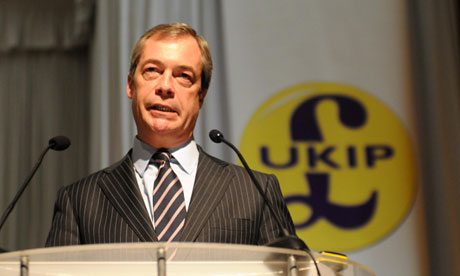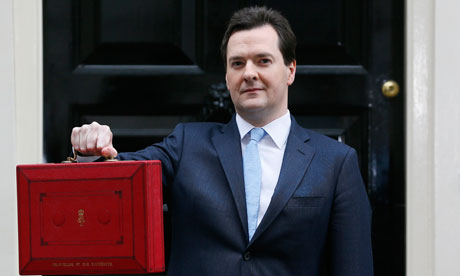Sandie Shaw claims that today, she’d need a private education to make it as a star. Is she right?
Is there a single public figure in Britain who did not go to private school? With the Prime Minister, the Mayor of London and the Archbishop of Canterbury all owners of the black and pale-blue striped Old Etonian tie, it can sometimes seem that way.
Half the Cabinet, more than half of the country’s top medics and 70 per cent of judges went to fee-paying schools – compared to just 7 per cent of the overall population. It is not just men in suits, wigs and white coats who are likely to have been privately educated. Over a third of Team GB’s Olympic medallists from last summer went to private schools.
This week, the debate was reignited by the improbable figure of Sandie Shaw. The 1960s singer, of Puppet on a String and lack of shoes fame, was in front of the culture, media and sport select committee at the House of Commons. She claimed that it would be impossible for her, the daughter of a Dagenham car worker, to repeat her success in today’s world.
“At the moment, unless you are Mumford & Sons and come from a public school and have a rich family that can support you, you’re on the dole and you’re trying to work and by the time you get a sniff of a record contract you just grab anything they might offer you,” she said.
Poor old Mumford & Sons – forever destined to be wheeled out as an example of the public-school mafia that dominate the Top 40. Most of the members of the “nu-folk” band met while pupils at King’s College Wimbledon, incidentally the same private school attended by Nick D’Aloisio, the 17-year-old who landed himself a £20 million internet fortune this week. Then there are Chris Martin of Coldplay, Florence Welch, Dido, Lily Allen, Radiohead and nice, fresh-faced Will Young – public school educated one and all. Even the Saturdays, the girl band currently occupying the number one slot in the singles chart, contains two members whose parents paid for their education.
How private schools have continued to attract pupils during the downturn has baffled some economists, particularly considering fees have increased by 75 per cent in the last decade. But this sheer weight of success – across the full spectrum of British life, from the track of Sir Chris Hoy’s Olympic velodrome to the stage of the Birmingham hippodrome – is one of the reasons why parents seem willing to dig deep into their pockets. Sandie Shaw’s comment struck home: a private school education increases your child’s chances, even their artistic ones.
The Sutton Trust, which monitors the rusty wheels of Britain’s social mobility, carried out a snapshot survey of the school backgrounds of 8,000 “notable people” deemed important enough to have their birthdays announced in the broadsheet newspapers. Even the arts – where you might think raw talent rather than education would be the deciding factor in a successful career – were dominated by private school pupils. Half of the 135 theatre producers and directors went to private school, and four out of 10 actors too (including Old Etonians Eddie Redmayne and Damian Lewis).
Pop stars, in fact, were one of the least privileged groups, only out-plebbed by policemen. The government-funded Brit School, the performing arts college in Croydon whose alumni include Amy Winehouse, Leona Lewis and Adele, has a far better track record than Eton, which hasn’t had a chart-topper since Humphrey Lyttelton. Even so, a considerable 19 per cent of singers and band members went to private school.
The success of private schools in the so-called “soft” areas such as sport and the arts is partly down to facilities, which have tended to mushroom over the last generation as schools have entered into sports-hall and recording studio “arms races”. Ed Smith, the former England cricketer, pointed out in his book Luck that when England toured Pakistan in 1987-1988 all but one of the 13 players selected were state-educated. When England played India in the summer of 2011, eight of the team’s 11 were privately educated, including Stuart Broad, an alumnus of Oakham and Andrew Strauss, the captain, who went to Radley.
This happens to be my old school (yes, I am one of the 52 per cent of newspaper journalists who went to private school), an institution where the playing fields stretch almost as far as the eye can see – certainly far enough for every single one of its 640 pupils to be playing cricket on a summer afternoon. It also boasts a state-of-the-art theatre, studio space for smaller productions, a music school and concert hall. My hackles rise when a begging letter arrives asking me to help fund yet another Olympic-standard fencing gallery.
Phil DeFreitas, the cricket all-rounder from the 1988 era, went to Willesden High School in north London. Its playing fields were dug up to build a new City Academy, with a glittering building by Sir Norman Foster. It has a basketball court and an Astro Turf pitch for football, but no lovingly watered cricket wicket. It is no surprise that when DeFreitas retired he ended up as a cricket coach not at his old school, but at Oakham, where his experience was used to train future privately educated Stuart Broads, not comp kids like himself.
It is not just the equipment, however. Lee Elliot Major, at the Sutton Trust, says: “There are just not enough state schools that have an aspirational culture. The grammar schools, whatever you may have thought of them, created pupils who aspired, and most independent schools share that. This is as true for pop stars as it is for doctors and lawyers.”
Jo Dickinson, an accountant and mother of three, is about to send her 11-year-old daughter to a private girls’ school. Both she and her husband, a banker, attended comprehensive schools. “My school was good, but it did nothing to nurture me or give me confidence,” she says. “My daughter’s school prides itself on inviting artists and actors as well as doctors and lawyers to give talks to the girls. It’s just something I never had.”
Rachel Johnson, the journalist and sister of Boris, says: “It’s peace of mind. That’s what you are getting when you take on that third mortgage to pay for fees. It’s the peace of mind that you can’t do anything more for your children.”
She thinks the fabled confidence that private schools give their pupils is more of a “veneer”. She, like many parents, frets that this comes with a major disadvantage. Namely, that children will mix in too narrow a social group, shut off from the real world. But this is usually outweighed by the hope that, articulate or not, they will get a leg-up, often in the form of an unpaid internship. In the 1980s, just five per cent of the film industry workforce had under-taken unpaid work, but this rose to 45 per cent over the last decade.
Ryan Shorthouse, at the Social Market Foundation, and author of a report about access to the creative industries, says it is not the unpaid element that is the key barrier. “Bright, talented and enthusiastic people will always find the means and ways to fund an unpaid internship; but they don’t all have access to the network of these internships. This is particularly the case in the creative industries, which tend to be made up of small firms, without the large-scale work experience schemes accountancy or law firms have.”
The confidence that privately educated children are supposed to possess is generated not just by small class sizes, world-class facilities and an encouragement to aspire. It comes from an innate understanding that they will grow up knowing the right people, that there is a network they can tap into. As Dr Elliot Major says: “Politicians talk of soft skills; it’s more than that. They are life-defining skills – that is what the top private schools are so good at giving their pupils.”
This is something that parents who are lucky enough to have money understand. For all the promises from Michael Gove’s education department to inject academic rigour into the state school system, governments will always struggle to compete with the “life-defining skills” on offer in the private system.







